Check out some books by your tutor Fiona Veitch Smith … (click on the book covers to find out more)
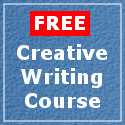 Hello everyone, welcome to the first session of our free online creative writing course. Over the next eight sessions we will be looking at different aspects of creative writing and trying our hand at various forms. I’d strongly encourage you to have a go at the exercises along the way, and please feel free to leave comments or ask questions at the end. If you have arrived on this page without first reading the home page and frequently asked questions page (on tab above) please go back and do so now. If you have read them, enjoy the course!
Hello everyone, welcome to the first session of our free online creative writing course. Over the next eight sessions we will be looking at different aspects of creative writing and trying our hand at various forms. I’d strongly encourage you to have a go at the exercises along the way, and please feel free to leave comments or ask questions at the end. If you have arrived on this page without first reading the home page and frequently asked questions page (on tab above) please go back and do so now. If you have read them, enjoy the course!
Creativity and Art
What is creativity? The Collins dictionary defines it as ‘the ability to cause something to exist’. Without getting into too much of an existential discussion, I would say that with every thought that is expressed, something has been created. It was Descartes who said: ‘I think, therefore I am’; well I would add, ‘I think, therefore I create’ (do you feel a God complex coming on?). But how do we express our thoughts? Sometimes we do it verbally, other times by body language and still again through what is loosely termed ‘art’.
Art takes place when a thought is expressed and fixed in a way that other people may experience it on an aesthetic level – through music, writing, painting, sculpture, choreography and so on. Many artists say that their best work takes place when they ‘by-pass’ the thought and simply express the feeling. This may be true, but for writers, who use a verbal medium, a feeling must first be converted into a thought before it can be put into words. Don’t over analyse the thought before you express it, as this way you can ‘channel’ the purest interpretation of the feeling, but some cognitive process needs to take place. Some writers prefer to mull over a thought and give it form before they put pen to paper – I’m one of them – but it’s good practice to try and switch off the ‘editor’ at least for the first draft. First response trigger exercises are useful in this regard and can release some unexpected words and images.
Exercise 1:
Write down your first response to these words or phrases:
- Blue ball
- And that’s when the sadness came
- Coffee
The first task of a good writer is to convert feelings into thoughts and then into words. This is the raw material that can then be converted into something more permanent. Some writers refuse to toy with their first drafts, believing their creativity will be diluted; I disagree. Allowing your critical mind to improve a piece of writing is where the craftsman meets the artist. Something produced only by the former will lack soul and something by the latter will lack form. Good writing is a combination of art and craft.
For public consumption
Art, of course, is highly subjective and one woman’s masterpiece is another woman’s unmade bed. We all have the ability to create, but whether or not our creation is ‘art’ must be left to the eye or ear of the beholder.
In this session we will look at how you can craft those creative thoughts into creative writing to share with other people. And that’s what sets ‘public’ writing apart from ‘private’ scribblings – there’s a perceived readership in mind. When I ramble on in my journal, I am the only one who will read it (hopefully!) so my only concern is getting my thoughts down on paper. The moment I want someone else to read it I begin to consider ways to improve the presentation and craft it into something more aesthetically pleasing. I consider which words may sound more colourful, whether or not my sentence structure is grammatically correct, whether I’m using evocative imagery, and so on.
Story, feeling or image?
What is it about those creative thoughts that you think might be of interest to other people? Do they speak of an eternal truth or a common experience? Do they make you laugh or cry? Do they suggest a story that will entertain or a poem that captures a moment that must be shared?
Exercise 2: In 50 words or less write down why you want to write then list three creative thoughts that you’ve had lately (each 10 words or less). These may be an image, a musing, a ‘truth’, a story, or so on. If you haven’t had any, take yourself for a walk and look around; what grabs your imagination? Browse through a newspaper or a magazine; do any stories or pictures catch your attention? Think back over your day; did anything funny, charming, shocking or unusual happen to you or someone you know?
Poetry or prose?
Some people are more suited to writing poetry than prose and some people do well at both. Although we won’t be discussing it in this course, other people are more suited to script. I’m one of them. I’ve had relative success as a prose writer and in fact have managed to earn a living from it, but it’s taken years of hard work to get to this point. I recently branched out into scriptwriting and found that I had much more of a natural ability. (If you’re interested in finding out more about scriptwriting, check out getting started in playwrighting). You may find that you’ve been trying to make it as a poet when actually you’re more suited to prose. Now I don’t want to pigeonhole anyone, but ask yourself the following questions:
- Are you more attracted to films than stills?
- Do you enjoy telling people ‘stories’ from your life?
- Do you prefer to read stories or poems?
If yes, to these, then you may be more suited to prose than poetry. If no, then the opposite may be true. If it’s ‘sometimes yes, sometimes no’ then perhaps you are suited to both. We shall be looking at how to write poems in more detail in session 7, but suffice to say, a poem is like a snapshot of a moment. If you can’t rest until you know what happened before and after, then prose may be your genre.
Exercise 3: Take one of the three creative thoughts you wrote down in Exercise 2, then list 20 separate words that communicate or describe that thought. Do not, at this stage, link the words into sentences. Once you have your 20 words use them in a poem of 16 lines or less. Then, take the same 20 words and work them into a short story of under 300 words. Which exercise came more easily? Which form has best communicated your creative thought?
Further Resources:
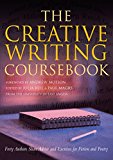
There are some excellent resources out there for creative writers. To get quick ‘starter’ images when your own well is dry I recommend The Writer’s Block by Jason Rekulak. I’m currently working through The Creative Writing Coursebook by Julia Bell and Paul Magrs and finding it very useful.
The next creative writing course session is how to write a short story. But before you move on to that, please feel free to leave a comment or ask a question in the box below.
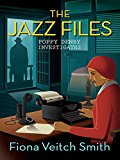
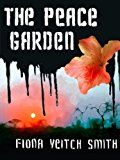
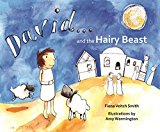
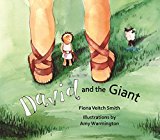
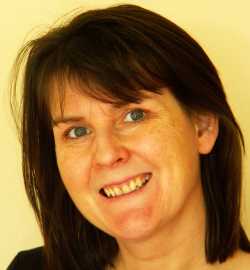 Welcome to The Crafty Writer's free online creative writing course, presented by Fiona Veitch Smith, a freelance journalist, editor, author, playwright, screenwriter and writing teacher. I hope that you'll see a dramatic improvement in the quality of your writing as you work through this course.
Welcome to The Crafty Writer's free online creative writing course, presented by Fiona Veitch Smith, a freelance journalist, editor, author, playwright, screenwriter and writing teacher. I hope that you'll see a dramatic improvement in the quality of your writing as you work through this course.
I am so excited to get started on this course. Thank you for making this available!
Interesting exercise, I think I like stories better than poems, but my poem was very good as well.
Hi Ms. Fiona, My Name is Deronta Smith. I am attempting to become a creative writer. I am trying to learn the basics of becoming a writer. Are there any books, DVD’s, classes or web sites that you can suggest to assist me in this venture?
Any suggestions are greatly appreciated.
Kind Regards,
Deronta Smith
Hi Deronta, start with this course – it’s free and covers all the basics. It also suggests books as you go along. And in the final session other resources are suggested.
Good luck!
Fiona
i find it very useful and intersting!
I find it very useful and interesting!
Thank you for offering people like myself a spring board on getting into writing. I have always wanted to be a writer, I think stories are a wonderful way to express oneself, and offer either new ideas, advice or an escape for people from their daily lives. I plan on doing this seriously, and again thank you for providing this service.
You’re welcome, Tonya.
Dear Fiona, I am a journalist too and your course and the tips are being extremely helpful to me. Thank you so much for sharing all this for free! All the best!
Hello Gloria, then as a journalist you may want to try the non-fiction writing course too http://non-fiction-writing-course.thecraftywriter.com/
I am in the midst of writing a poem with the 20 words about my thoughts. When you say write a poem using those 20 words in 16 lines, at the most, you of course mean to use other words as well in this poem, eh? I’m sure this answer is obvious, but need to make sure as I was once asked to do something similar with only a certain amount of words.
Hi Emma, yes you can use other words. And you can change or modify the word as needed – eg change its tense or modify the verb etc.
I am having a very hard time with getting creative thoughts
Blue ball- there was a happy little boy playing with his new bouncy blue ball
And that’s when the sadness came- when the cold winter froze all of the crops leaving the town with nothing
Coffee- the smell of the fresh coffee woke me up pouring my first drink warmed my body sending a urge threw me
enjoying the process
Thank you for this course. I never took a creative writing course in any of the schools I attended, and now, at the age of 61, I feel like I should have. I feel like I have something to say locked inside, trying to get out…I just need a lever big enough to move it. Just working through the exercises, and I haven’t even finished the last one yet, I’ve written four pages! Thanks again.
I just completed the first lesson,and to be very honest,I have never felt so liberated writing the poem and the story both. It brought back memories of my dreams,my fantasies,what I want to be in life and what not. I feel overwhelmed right now. I can’t thank you enough,for this. Thank you,really.
Shataqshi, that is wonderful to hear. May your liberation continue!
Though I am yet to begin this course, but the 3 exercises that I did so far were very creative, I love the way the writer had described and explained the simple steps to learn and write creatively. Thank you so much, I hope through this course I will be able to give wings to my dream of writing. Thank you so much:)
You’re most welcome, Shilpi.
Hello Ms. Fiona. I really want to thank you this huge efffort you have done, in which you casted great advice and experiencie with a funny-didactic prose. I´m actually a novice writting enthusiast, so maybe this comment may have obvious orthographic or grammar mystakes. To get to some point, I really thank you this free online course, hoping to improve my writting skills. Have a nice day!!!!
You’re welcome Israel. I hope you get a lot out of the course. It will not improve your grammar though as it is not that sort of course. There are lots of free online courses that can help you improve your basic English such as http://www.english-online.org.uk/course.htm Good luck!
i am glad for the work your doing. thanx
I’ve written a lot of stories but I always get stuck right in the middle. so I just start form scratch again. so I figure if I can get some lessons maybe I can never get stuck again.
Oh you’ll always get stuck, Andrea, that’s what middles do. The difference you may start noticing is that you manage to get unstuck and move forward rather than starting again. It always helps to know the end of your story when you are stuck in the middle so you have something to aim towards.
This is brilliant. Thank you very much!
Hi Fiona,
I am so happy I found this site. I have been translating English-German-English for many years now and recently I began blogging. I love writing and constantly have the urge and desire to improve my skills and learn new stuff.
MOOCs and my schizophrenic son are my greatest source of inspiration.
I look forward to this writing course. Thank you!
Heila
You’re welcome, Heila!
I did not realize how easy it is to write 300 words ! I am so encouraged and excited. I really believe I can write a book.
I’m so pleased for you Robert!